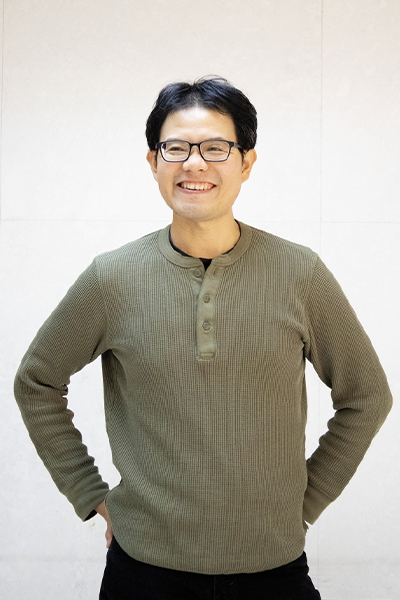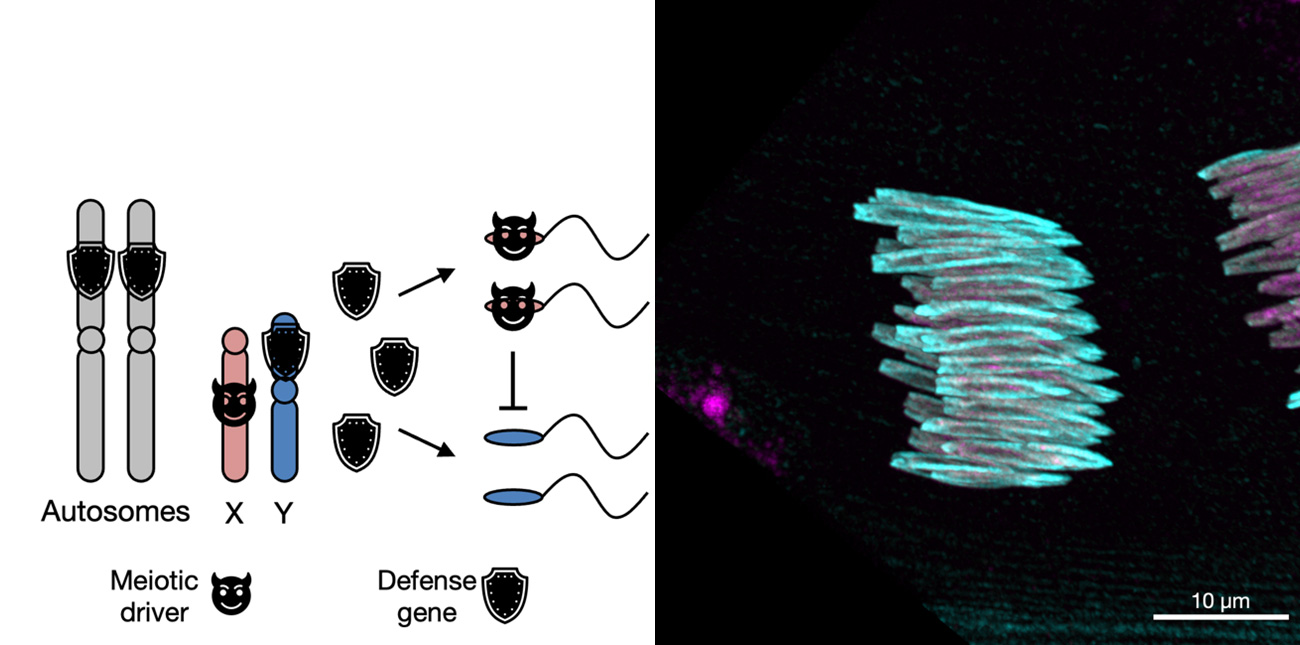Genetic conflicts shape rapid evolution of reproduction and chromosomes
We are interested in how internal genetic conflicts drive the evolution of essential genes and genome architecture. Genes essential for survival and reproduction are expected to be conserved; however, some evolve rapidly or exhibit lineage-specific turnover. Similarly, while chromosomal mutations, such as fusions and translocations, are typically viewed as harmful, chromosome structures vary dramatically across species and often play key roles in speciation and the emergence of complex traits.
Our research is based on the hypothesis that these surprising evolutionary patterns are driven by internal genetic conflicts—evolutionary arms races between selfish genetic elements, such as meiotic drivers and transposons, and the host genome. These conflicts leave behind molecular scars and innovations that reshape chromatin, regulatory networks, and chromosome structures.
In our lab, we study meiotic drivers, selfish genetic elements that bias their transmission to the next generation by eliminating gametes that do not carry them. Although these elements reduce fertility, they can spread rapidly, driving the host genome to evolve countermeasures. Our research has identified and characterized a set of rapidly evolving essential genes that may play a key role in suppressing meiotic drive across species. Among these, we focus on sperm nuclear proteins, or protamines, which are essential for male fertility because they replace histones to tightly compact DNA in sperm. By uncovering the molecular mechanisms underlying meiotic drive, we aim to understand how and why male reproductive systems are evolving so rapidly across the tree of life.
We are also investigating atypical chromosomes—including sex chromosomes, germline-restricted chromosomes, and B chromosomes. These “genomic outlaws” violate Mendelian rules of inheritance and often evolve selfish strategies to increase their transmission via manipulating chromosome segregation or cell division. By studying their unusual behavior, we seek to understand how chromosomes evolve under non-Mendelian inheritance and how genomes preserve integrity while tolerating or resisting such exceptions.
Our research aims to uncover the fundamental principles of reproduction and chromosome biology and provide insights into chromosome instability and rearrangements, including those observed in diseases and cancers.
- PDF, 2020-2025, Division of Basic Sciences, Fred Hutchinson Cancer Center
- Ph.D., 2014-2020, Department of Biology, University of Rochester
- M.S., 2009–2011, Institute of Ecology & Evolutionary Biology, National Taiwan University
- BS, 2005-2009, Department of Life Science, National Taiwan University
- Zakerzade R#, Chang C-H#, Chatla K, Krishnapura A, Appiah SP, Zhang J, Unckless RL, Blumenstiel JP, Bachtrog D, Wei KH* (2024) Diversification and recurrent adaptation of the synaptonemal complex in Drosophila. PLoS Genet 21(1): e101154
- Chang C-H*, Mejia Natividad I% and Malik HS (2023) Genetic conflicts between sex chromosomes drive expansion and loss of sperm nuclear basic protein genes in Drosophila. eLife 12:e85249.
- Chang C-H*, Gregory EL%, Gordon KE, Meiklejohn CD and Larracuente AM* (2022) Unique structure and positive selection promote the rapid divergence of Drosophila Y chromosomes. eLife 11:e75795
- Chakraborty M#, Chang C-H#, Khost D, Vedanayagam J, Adrion JR, Liao Y, Montooth KL, Meiklejohn CD, Larracuente AM*, and Emerson JJ* (2021). Evolution of genome structure in the Drosophila simulans species complex. Genome Research, 31, 380-396.
- Chang C-H#, Chavan A #, Palladino J#, Wei X, Martins NMC., Santinello B, Chen CC, Erceg J, Beliveau BJ, Wu CT, Larracuente AM*, and Mellone BG* (2019). Islands of retroelements are major components of Drosophila centromeres. PLoS Biology, 17(5), e3000241. (F1000 recommended)
- Chang C-H*, and Larracuente AM* (2019). Heterochromatin-Enriched Assemblies Reveal the Sequence and Organization of the Drosophila melanogaster Y Chromosome. Genetics, 211(1), 333-348. (Highlight article, F1000 recommended)
- Chang C-H*, and Larracuente AM (2017). Genomic changes following the reversal of a Y chromosome to an autosome in Drosophila pseudoobscura. Evolution, 71(5), 1285-1296.

